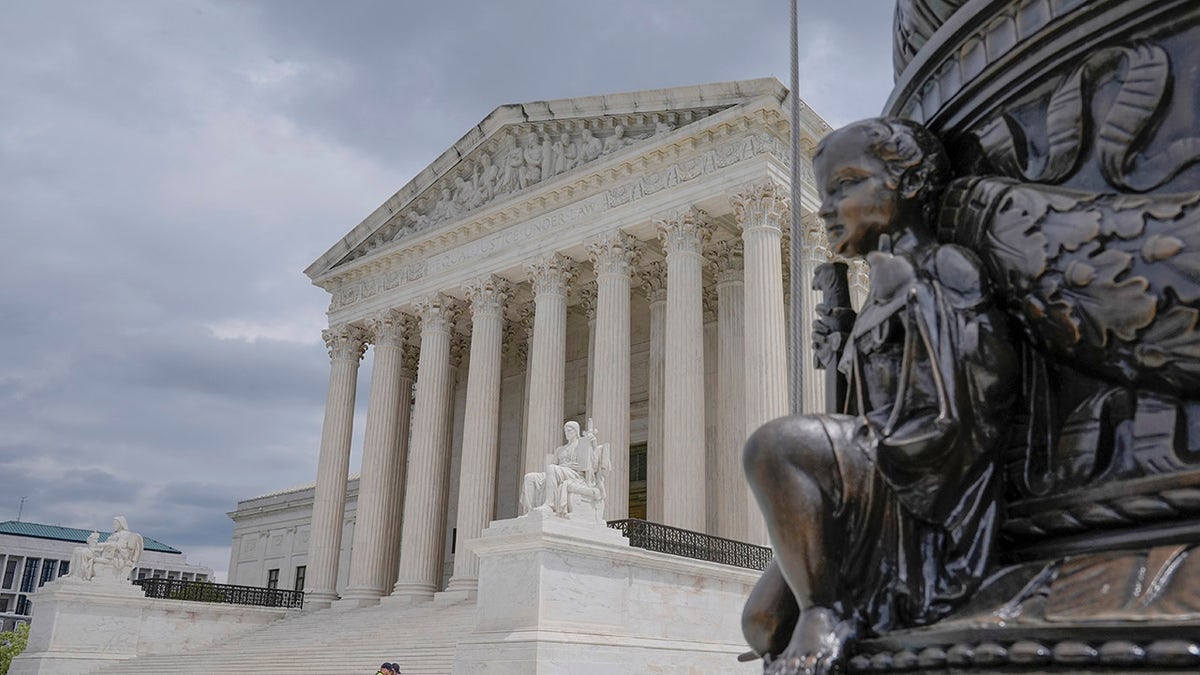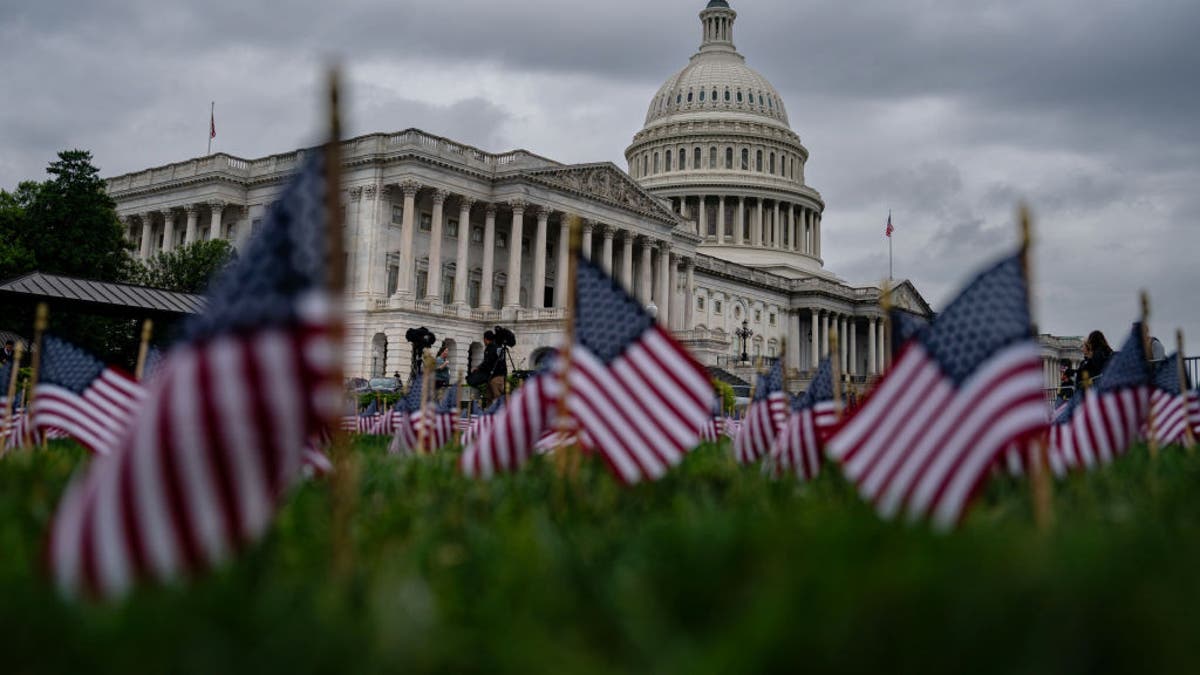
The Supreme Court this term took a hammer to decades-old legal doctrine that largely saved executive branch agencies in legal disputes. Now, experts say Congress and the next president will have no choice but to work more closely together and stop relying on the “faceless leviathan” of federal agencies.
In a David vs. Goliath dispute, a group of fishermen sued a government agency that mandated the fishermen pay $700 for “at sea monitors,” arguing that the rule is out of the bounds Congress set for the federal agency.
The Supreme Court ruled in favor of the fishermen in a 6-3 decision last month, and, in doing so, overruled what is known as the Chevron doctrine — a legal theory established in the 1980s that says if a federal regulation is challenged, the courts should defer to the agency’s interpretation of whether Congress had granted it authority to issue the rule, as long as the agency’s interpretation is reasonable and Congress had not addressed the question directly.
Justices Elena Kagan and Sonia Sotomayor dissented from the majority, warning that eliminating Chevron could give judges without expertise authority in legal disputes regarding regulation of food, medicine, the environment, etc.
SUPREME COURT SIDES WITH FISHERMEN IN LANDMARK CASE DECIDING FATE OF THE ADMINISTRATIVE STATE

Experts say Congress and the next president will have no choice but to work more closely together and stop relying on the “faceless leviathan” of 3-letter government agencies. (New Civil Liberties Alliance and Cause of Action)
But conservatives and Republicans, who argued Chevron gave the government too much power to rule through bureaucratic red tape, praised the decision.
“The Supreme Court’s decision in Looper Bright v. Raimondo is a big win for the little guy and a big blow to big government. Power ought to reside with Americans and those they elect and not the faceless leviathan of 3 letter agencies that has thrived under Joe Biden,” said Sen. Eric Schmitt, R-Mo.
“I think what this decision should mean is that our elected leaders in Congress should be the ones who are making the laws that impact Americans’ everyday lives, and not unelected bureaucrats in cubicles in Washington, D.C.,” Casey Mattox, vice president of legal strategy at Stand Together, told Fox News Digital.
“It should mean the president having to work with Congress instead of just simply major swings from one direction to the other every four to eight years. That has not served America well,” he said.
“Congress should not be passing the buck to unelected people to make the decisions,” Mattox added. “And so, I think essentially what the decision to overturn Chevron means is that when Congress is passing laws, it needs to actually get the expertise it needs and then be politically accountable for the decisions it’s making.”
HOW MAINE LOBSTERMEN TURNED A ‘SLAP IN THE FACE’ FROM THE WHITE HOUSE INTO A POLICY VICTORY

The Supreme Court this term took a hammer to decades-old legal doctrine that largely saved executive branch agencies in legal disputes. (AP Photo/Mariam Zuhaib, File)
With Chevron eliminated, Congress will now be forced to write laws with more clear language and less ambiguity.
John Vecchion, counsel for New Civil Liberties Alliance, who represented some of the fishermen in the case, said that one of the damages of the Chevron doctrine was that it incentivized Congress, both Republicans and Democrats, not to compromise on clear language when writing bills that become law.
“Because they would make a bet that when their friend was in executive office, either the Republican or the Democrat, the regulation would be made in such a way that helped them, and they could then say ‘this is the law’ but not take the blowback if there were bad results from that,” he explained.
Republicans in Congress have already shifted focus to legislation that would eliminate more executive red tape.
Rep. Kat Cammack, R-Fla., and Sens. Schmitt, Rand Paul, R-Ky., and Mike Lee, R-Utah, held a press conference Wednesday to press forward on regulatory reforms.
“It should infuriate Americans that for decades some of the most important policy questions have been decided by unelected bureaucrats and not their elected representatives,” Cammack said.

With Chevron eliminated, Congress will now be forced to write laws with more clear language and less ambiguity. (Getty Images)
She added that the Supreme Court’s decision “cracked open the door” and that lawmakers need to “ensure that Congress is the chief lawmaking body, not bureaucrats.”
That assurance could come in the form of the Regulations from the Executive in Need of Scrutiny Act, or REINS Act.
The bill would broaden the scope of the Congressional Review Act to require every new “major rule” proposed by federal agencies to be approved by Congress before going into effect.
Specifically, the House and Senate would be required to pass a joint resolution in order for a major rule to be approved by Congress.
The bill defines a “major rule” as any federal rule or regulation that may result in an annual effect on the economy of $100 million or more; a major increase in costs or prices for consumers, individual industries, government agencies or geographic regions; or significant adverse effects on competition, employment, investment, productivity, innovation or the ability of U.S.-based enterprises to compete with foreign-based enterprises.
CLICK HERE TO GET THE FOX NEWS APP
“The REINS Act would… reverse the problem that we’ve got now today, where you can be deprived of life, liberty and property… simply by violating something that’s never even darkened the door of either chamber of Congress, let alone passed in the manner required,” Lee said.
Additionally, House Majority Leader Steve Scalise, R-Ky., on Tuesday sent letters to federal agencies to “demand the review of various overreaching regulations” in an effort to “free the American people from the power-hungry administrative state.”
“With their ruling in this case, the Supreme Court restored proper constitutional separation of powers as our Founding Fathers intended by overturning Chevron deference and requiring the courts to decide disputes over interpretation of statutory text,” he said Wednesday.
“Agencies can’t be allowed to run free without any checks on their power — we’ve already seen how frequently federal agencies will abuse their authority,” Scalise said.






